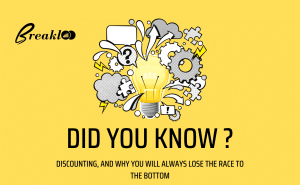Business
Business is the act of making, selling, or trading goods and services to make a profit. It’s important to modern society because it provides what people need and want. There are many types of businesses, from small stores to big corporations. The goal of business is to give customers value and make money. Good management is key to a successful business, including planning, finances, marketing, and human resources. Businesses can impact the environment and society, so many are working to be more responsible. Overall, business is important for progress, and management and responsibility are necessary for success.
Furthermore, businesses have a crucial role in driving innovation, creating jobs, and boosting economic growth. They contribute to the development of new technologies, products, and services, which can improve people’s lives and increase productivity. Through job creation, businesses provide people with income and opportunities for personal and professional growth.
However, it is essential for businesses to operate ethically and responsibly. They must prioritize the well-being of their customers, employees, and the environment over profits. This means following ethical business practices, promoting diversity and inclusion, respecting human rights, and supporting sustainable practices.
Moreover, businesses must comply with regulations and laws set by governments to ensure they operate in a fair and transparent manner. This includes paying taxes, providing safe working conditions, and adhering to environmental standards.
Business plays a vital role in modern society by providing goods and services that people need and want, creating jobs, driving innovation, and contributing to economic growth. Effective management and responsibility are crucial for the success of any business, as they help to ensure ethical and sustainable practices. Therefore, it is important for businesses to prioritize the well-being of their customers, employees, and the environment while complying with laws and regulations to support the overall well-being of society.
Today’s Business
The world of business today is rapidly evolving and changing, driven by technological advancements, shifting consumer behavior, and global competition. In this article, we’ll explore the key trends shaping the landscape of business today and what they mean for businesses of all sizes.
Digital Transformation
Perhaps the biggest trend in business today is digital transformation. As more and more businesses move online, companies are increasingly focused on leveraging technology to improve efficiency, streamline processes, and enhance the customer experience. From e-commerce platforms and digital marketing to artificial intelligence and blockchain, businesses are investing in digital tools and solutions to stay competitive in a rapidly changing market.
Remote Work
Another significant trend in business today is the rise of remote work. With the COVID-19 pandemic forcing businesses to shift to remote work, many companies have discovered the benefits of a remote workforce, including reduced overhead costs, improved work-life balance, and access to a larger pool of talent. As a result, many companies are adopting hybrid work models that allow employees to work both in the office and remotely.
Social Responsibility
In recent years, social responsibility has become an increasingly important consideration for businesses. Consumers are demanding that companies take a stand on social and environmental issues, and businesses are responding by integrating sustainability and corporate social responsibility into their operations. This trend is expected to continue as consumers become more socially conscious and businesses recognize the benefits of a socially responsible brand.
Data Privacy and Security
As businesses collect more and more data from customers, data privacy and security have become major concerns. Companies are facing increasing pressure to protect customer data and comply with regulations such as the European Union’s General Data Protection Regulation (GDPR) and California’s Consumer Privacy Act (CCPA). This trend is expected to continue as data breaches become more common and consumers become more aware of the risks of sharing their personal information.
Globalization
Globalization has been a major trend in business for decades, but it continues to shape the landscape of business today. As businesses expand into new markets and compete on a global scale, they must navigate complex regulations, cultural differences, and language barriers. The rise of e-commerce and digital tools has made it easier for businesses to expand globally, but it also presents new challenges in terms of logistics, supply chain management, and customer service.
Innovation
Innovation is a key driver of business today, with companies focused on developing new products and services that meet the evolving needs of consumers. From disruptive startups to established companies investing in research and development, innovation is a crucial component of staying competitive in a rapidly changing market.
Competitive business world
In today’s highly competitive business world, branding is more important than ever, especially for small businesses. Branding is not just about creating a logo or slogan; it’s about building a unique identity for your business that sets it apart from the competition. In this article, we’ll explore the importance of branding for small businesses and how it can help them succeed in the marketplace.
-
Differentiation
Branding allows small businesses to differentiate themselves from their competitors. By creating a unique identity, businesses can stand out in a crowded marketplace and attract customers who are looking for something different. For example, if you own a small coffee shop, you can differentiate yourself by branding your shop as a cozy and welcoming place with a focus on quality, organic ingredients. This can help you attract customers who are looking for a more authentic and personalized coffee experience.
-
Recognition
A strong brand can help small businesses become more recognizable to potential customers. When people see your logo or hear your slogan, they should immediately associate it with your business and what you stand for. This recognition can help increase customer loyalty and drive repeat business. Additionally, a recognizable brand can make it easier for customers to refer your business to their friends and family.
-
Credibility
Branding can also help small businesses establish credibility in the marketplace. A strong brand conveys professionalism, expertise, and trustworthiness, which can help customers feel confident in doing business with you. This can be especially important for small businesses that are just starting out and may not have a long track record of success.
-
Consistency
Consistency is key when it comes to branding. Small businesses should ensure that their brand is consistent across all marketing channels, including their website, social media, and advertising materials. This consistency helps reinforce the brand identity and makes it easier for customers to remember and recognize the brand.
-
Competitive Advantage
Finally, branding can provide small businesses with a competitive advantage. By establishing a strong brand, businesses can differentiate themselves from competitors, increase customer recognition and loyalty, and build credibility in the marketplace. This can help them attract and retain customers, even in a highly competitive industry.
-
Emotional Connection
Branding is not just about creating a visual identity, it’s also about creating an emotional connection with customers. Small businesses can use their brand to tell a story, share their values, and connect with customers on a deeper level. For example, if you own a small bakery, you can use your brand to convey a sense of warmth, comfort, and nostalgia. This emotional connection can help build customer loyalty and drive repeat business.
-
Flexibility
One of the great things about branding is that it can be flexible and adaptable to changing market conditions. Small businesses can update their brand as needed to stay relevant and meet the evolving needs of their customers. This flexibility allows businesses to stay competitive and stay top of mind with customers.
-
Attracting Talent
Branding can also help small businesses attract top talent. A strong brand can convey a sense of purpose, culture, and values that can appeal to potential employees. This can be especially important for small businesses that are looking to attract and retain the best talent in a competitive job market.
-
Long-term Value
Finally, branding can provide small businesses with long-term value. A strong brand can become a valuable asset that can increase in value over time. This can make the business more attractive to investors and potential buyers, and can also help the business withstand economic downturns or other challenges.
Bottom line
The landscape of business today is rapidly evolving and changing, driven by technological advancements, shifting consumer behavior, and global competition. As businesses adapt to these trends, they must focus on digital transformation, remote work, social responsibility, data privacy and security, globalization, and innovation to stay competitive and succeed in today’s marketplace. Whether you’re a startup or an established company, understanding these trends and how they impact your business is crucial to long-term success.
Top trending articles “digital marketing agency”:
“cost per lead formula” Click here – Cost Per Lead Formula With Example
“website vs web application” Click here – Website Vs Web Applications
how to “rank higher on google” Click here – How to Rank Higher on Google
“digital marketing agency” Click here – Digital Marketing Agency
“best website development company” Click here – Best Website Development Company
“ecommerce website development company” Click here – eCommerce Website Development Company
“advanced digital marketing” Click here – Advanced Digital Marketing Article+PDF’s



